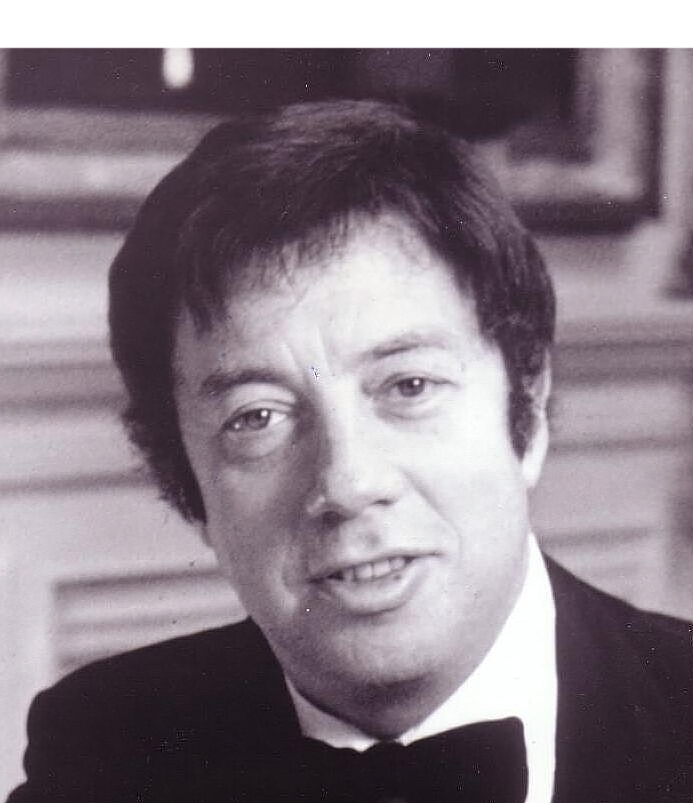
Godfather of the American musical theater
Oscar Hammerstein
InducteeIconic duo with Richard Rodgers transformed the Broadway musical
Oscar Hammerstein II probably contributed more than any other single person to the evolution of the American musical comedy from simple entertainment to a complex and sophisticated art form.
He was born on July 12, 1895 in New York City into a family prominent in show business. His grandfather, the first Oscar Hammerstein (1846-1919) was an important opera producer, active into his grandson's teenage years. His uncle Arthur was a Broadway producer. And his father William was the manager of a vaudeville theater, the Victoria, in Manhattan.
Oscar Hammerstein II studied at Columbia University, where he wrote and acted in student shows. He went on to get a law degree from the Columbia Law School, but soon after graduation he abandoned law for the theater, where he started his career as an assistant stage manager for his producer uncle Arthur Hammerstein.
He quickly became known as a writer of books and lyrics for musicals, mostly at first in the operetta style. His first big success, collaborating with co-writer Otto Harbach, who was some twenty years Hammerstein's senior, and composers Herberrt Stothart and Vincent Youmans, was Wildflower (1923). This was followed by Rose Marie (1924), working again with co-lyricist Otto Harbach and with music by Stothart and Rudolf Friml. He and Harbach then worked with Jerome Kern on Sunny (1925), which introduced "Who". And then, still with Harbach, came The Desert Song (1926), a classic operetta written with composer Sigmund Romberg.
In 1927, now working without Harbach, Hammerstein teamed up again with Jerome Kern and wrote the book and lyrics of one of the very greatest of all musicals, Show Boat. There was quite simply no precedent in the American musical comedy for the complexity and seriousness of purpose of the book, or for the richness and sheer size of the score of this show, which introduced such classic songs as "Make Believe", "Ol' Man River", "Can't Help Lovin' Dat Man", "You Are Love", and "Bill" (Hammerstein's revision of an earlier lyric by P.G. Wodehouse).
This was followed by another collaboration with Harbach and Romberg, and once again they produced a classic of the operetta genre, The New Moon (1928), which included "Lover Come Back To Me".
It would be difficult to imagine a more auspicious beginning of a career. However, in the 1930s, although he did some outstanding work on both stage and screen musicals, his career seened not to be fulfilling its early promise. Nevertheless, he worked with Jerome Kern on the show Music in the Air (1932), which included "I've Told Ev'ry Little Star" and "The Song Is You". He and Kern had a Broadway flop in 1939 with a show called Very Warm for May, a flop that included some of their finest songs, not least of which was the magnificent "All The Things You Are". Other songs with Kern from this period were "The Folks Who Live On The Hill" and "I'll Take Romance". And they won an Academy Award for "The Last Time I Saw Paris", which was included in the film Lady Be Good (1941). Still, by the end of the 1930s, people were thinking of Hammerstein as something of a has-been.
But when Richard Rodgers' collaboration with the brilliant but unstable Lorenz Hart collapsed, Rodgers chose to team up with Hammerstein, initiating a collaboration that was to transform the American musical theater.
They began with a masterpiece, Oklahoma! (1943, Pulitzer Prize), a show that significantly advanced Hammerstein's longtime goal of integrating all the elements of musical theater into a single artistically unified whole. This show included such classic songs as "Oh, What A Beautiful Morning", "The Surrey With The Fringe On Top", "I Cain't Say No", and "People Will Say We're In Love". They followed this with another extraordinary show, Carousel (1945), introducing "If I Loved You", "June Is Bustin' Out All Over", "Soliloquy", "What's The Use Of Wondrin'", and "You'll Never Walk Alone". They won an Academy Award for the song "It Might As Well Be Spring" from State Fair (1945). Allegro (1947) included "So Far" and "The Gentleman Is A Dope".
In 1949 came South Pacific /em>, winning them another Pulitzer Prize, and including "Bali Ha'i", "I'm Gonna Wash That Man Right Outta My Hair", "A Cock-Eyed Optimist", "Some Enchanted Evening", "There Is Nothing Like A Dame", "A Wonderful Guy", and "Younger Than Springtime". This was followed by The King and I (1951), with "I Whistle A Happy Tune", "Hello, Young Lovers", "Getting To Know You", and "Shall We Dance?".
In 1959, after a few lesser successes, they had their last great hit, The Sound of Music, which included "My Favorite Things", "Do-Re-Mi", "The Sound of Music", and "Climb Ev'ry Mountain".
Hammerstein served as a mentor to Alan Jay Lerner, and had an especially close relationship as mentor to the young Stephen Sondheim.
His best lyrics are characterized by an outer simplicity and inner depth of feeling, as well as a sharp attention to character.
Oscar Hammerstein II died on August 23, 1960 at Highland Farms, Doylestown, Pennsylvania.















